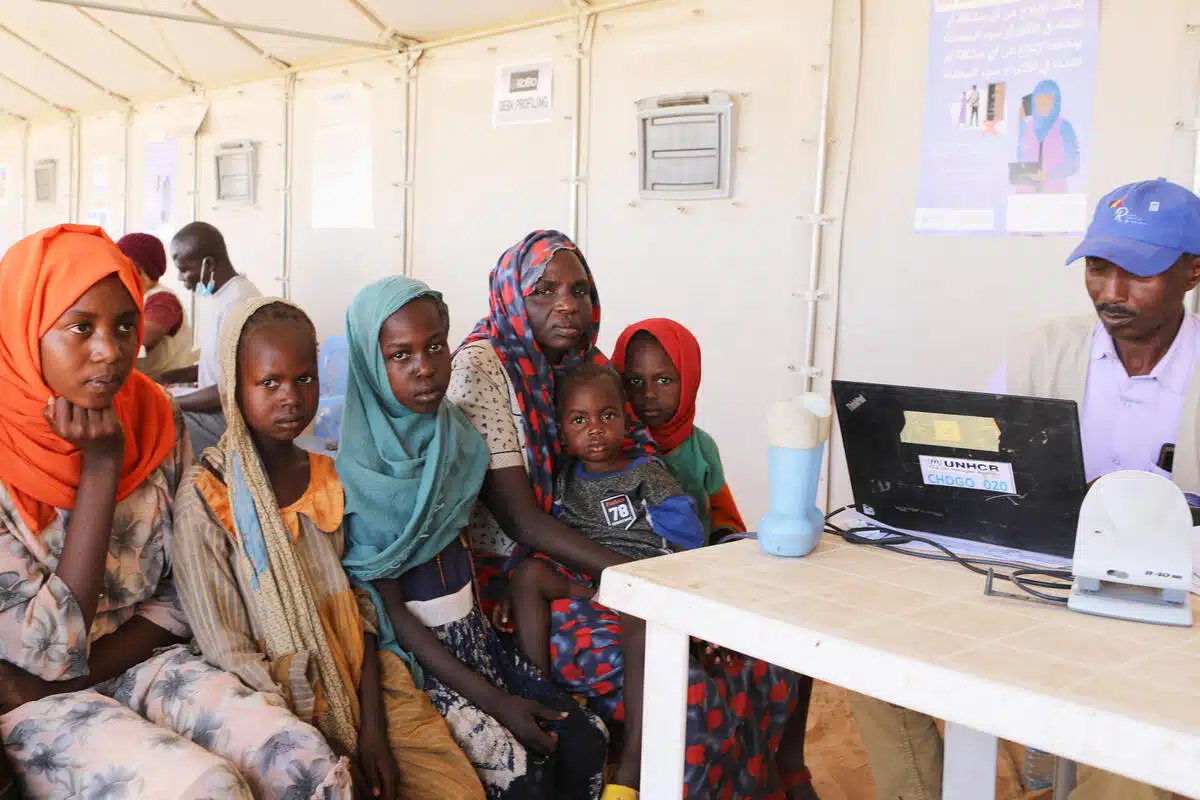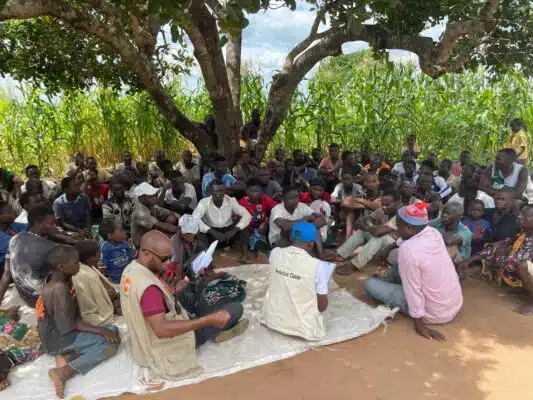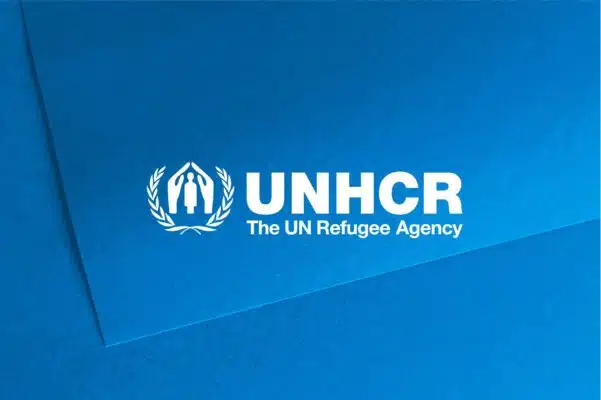
A family from Darfur, Sudan, is processed at a pre-registration centre for newly arrived refugees at Adre, Eastern Chad on 27 February. © UNHCR/Matthew Saltmarsh
N’DJAMENA, Chad – UNHCR, the UN Refugee Agency, is increasingly concerned that more refugees will cross to Chad from Darfur in the coming weeks amid a worrying lack of food and other essentials.
Almost a year since the start of the civil war in Sudan, neighbouring Chad urgently needs more humanitarian aid and significant development investment to stabilize the fragile socio-economic environment, especially in its Eastern refugee-hosting regions, and to allow the country to continue its generous open-door stance towards refugees.
“Chadian officials are concerned that many more hungry Sudanese families will come in the next weeks,” said Kelly T. Clements, UNHCR’s Deputy High Commissioner, currently in the country to review operations and discuss the response with hosts. “The country is committed to keeping its borders open, despite the fragility of this region. But doing so will put even more strain on Chad, which has so graciously been hosting refugees from Sudan’s war – now raging almost a year – and other refugees still here from earlier emergencies.”
In December, the World Food Programme suspended rations to some refugee groups in the country due to lack of funds. Subsequently, the government declared a state of emergency for food and nutrition security. Food distributions from Chad across the border to Darfur, where the security and protection situation is alarming, have not been made for well over a month, with cross-border aid recently suspended – a concern to all aid agencies worried about the looming impact on Darfur and, ultimately, Chad.
Women and children represent some 90 per cent of the refugees, with; 77 per cent of women arrived alone in Chad, with children. Many have been exposed to gender-based violence, including rape, and now require comprehensive follow-up support. UNHCR provides medical and some psychological support, but much more is needed.
“Arrivals have slowed in the last months, but that could change quickly,” Clements added. “Even without more coming, needs now run well beyond the capacities of humanitarian agencies. There are very real fears that the border region faces another paltry lean season before heavy rains lash the camps. Resources are scarce and humanitarian funding is extremely tight. We need development actors to step up, rapidly. A dire situation could become much worse very soon without concerted efforts to deliver more to Chad.”
More than 553,150 new refugees from Sudan had been counted by mid-February, making the country the largest host of refugees fleeing Sudan since the brutal war erupted in mid-April 2023. Overall, Chad now hosts 1.1 million refugees, making it Africa’s largest host per capita. The numbers include Sudanese who arrived before the latest war, and others from the Central African Republic, Nigeria and Cameroon. Chad also has almost half a million internally displaced people and returnees.
In the first year of the current crisis, working with the authorities, UNHCR has focused on relocating Sudanese refugees away from the border to safer areas; around 260,000 people have been moved to new sites and older ones have been extended by the agency for the new arrivals. Currently there are 160,000 refugees awaiting relocation. Finding new available sites is increasingly difficult, and creating shelters for those needing relocation and others who might arrive this year would cost many millions more – funds that are not available.
Programmes for the forcibly displaced in Chad face a chronic funding shortfall. For 2024, UNHCR alone requires $319.5 million, with just 4 per cent funded to date.
B-roll
Media contacts
- In Chad (on mission), Matthew Saltmarsh, saltmars@unhcr.org, +41 79 967 99 36
- In Dakar (regional), Alpha Seydi Ba, baalp@unhcr.org, +221 773 457 454
- In N’Djamena, Aristophane Ngargoune, ngargoun@unhcr.org, +253 6698 3792





